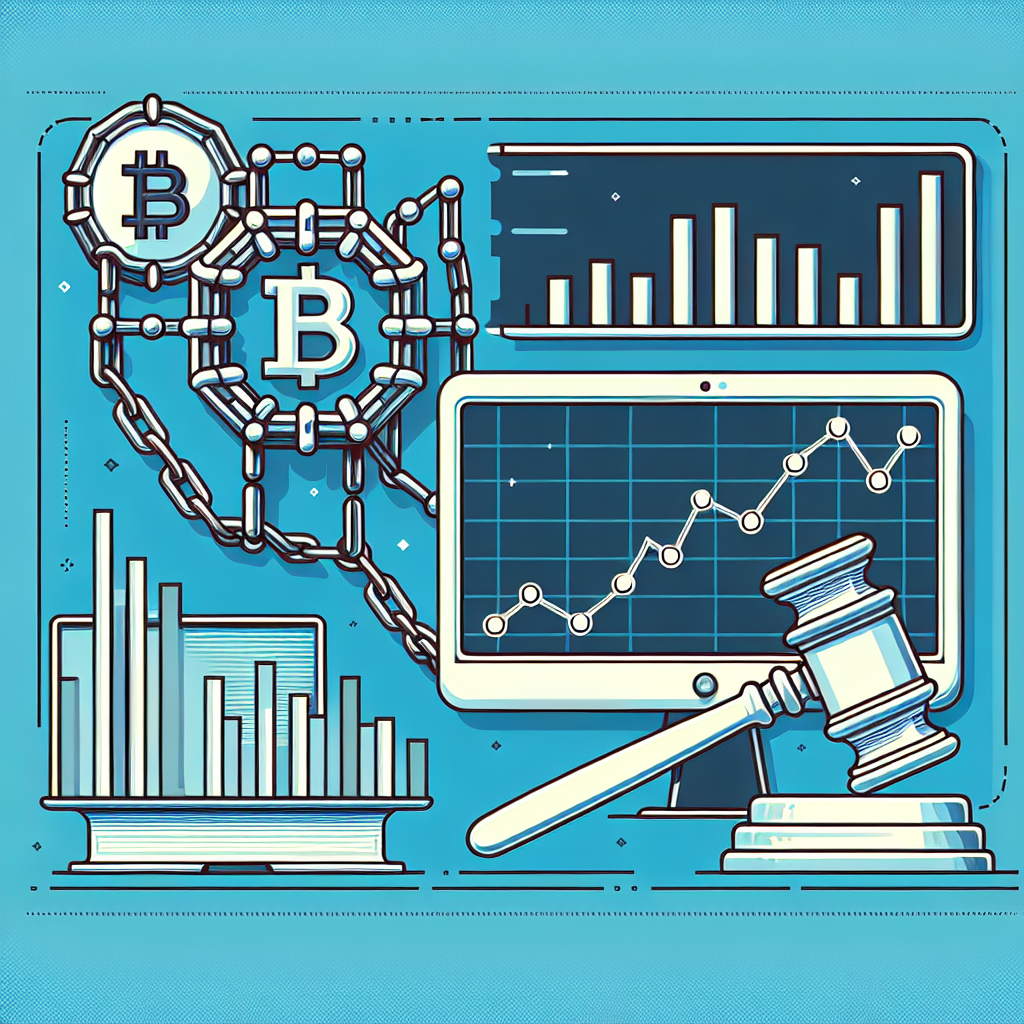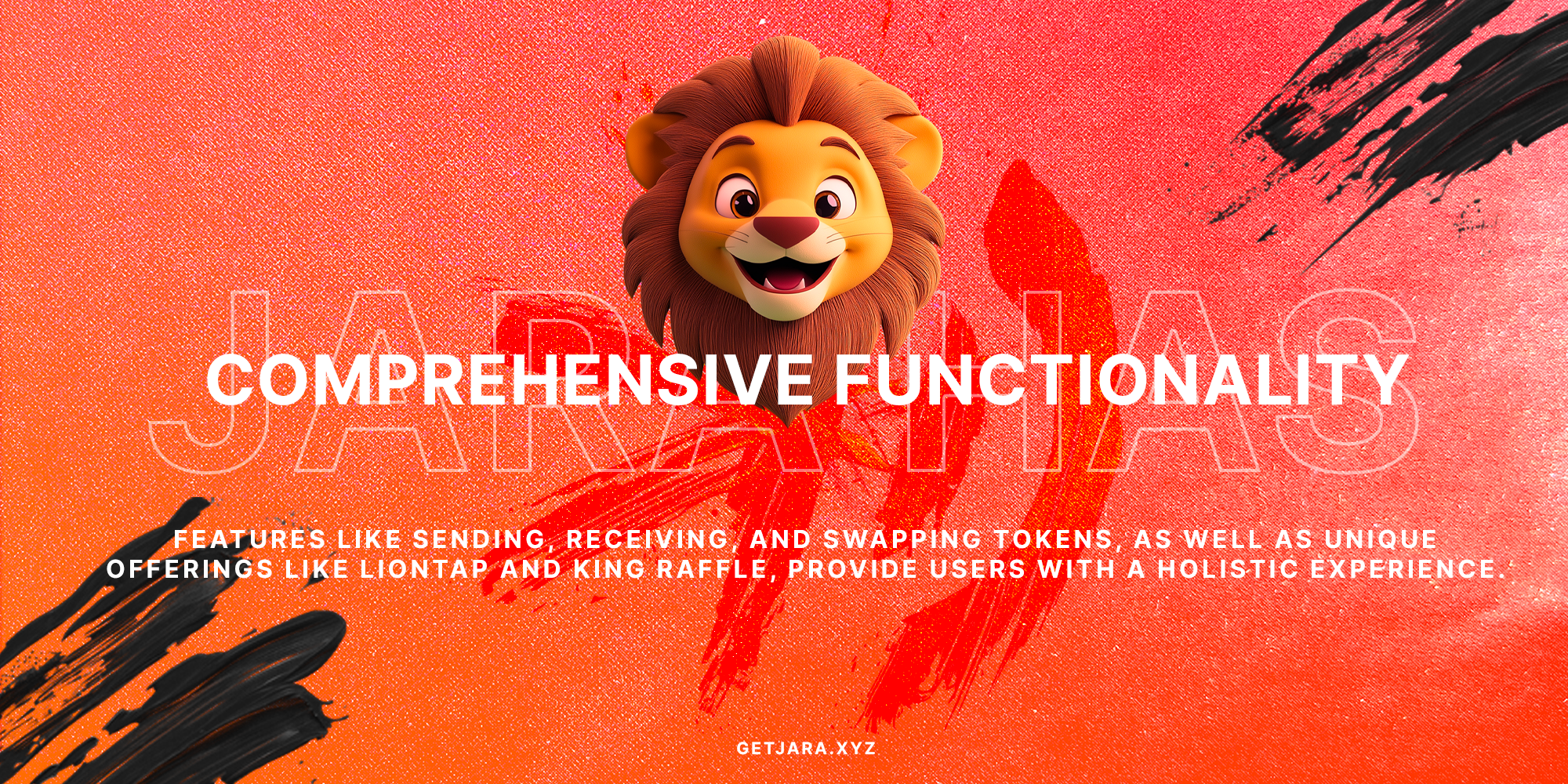Understanding Tokenized Stocks
Tokenized stocks represent a fascinating blend of traditional equity and cutting-edge technology, enabling the tokenization of real-world assets to be more accessible and dynamic. But what exactly does this mean? Imagine taking your traditional stock certificates and converting them into a digital format that can be stored, traded, and tracked on a blockchain. This not only introduces innovation into equity markets but also offers an entirely new level of flexibility and accessibility for investors around the globe.
What are tokenized stocks? Tokenized stocks are digital representations of equity in a company, issued and traded on a blockchain network, offering new ways to participate in ownership.
With tokenized stocks, the typical barriers to entry associated with traditional stock markets are drastically reduced. Because they’re traded as security tokens, they can potentially provide more liquidity and extend market hours beyond those of standard exchanges. This means more people from different parts of the world can participate at any time, contributing to the evolution of financial markets and increasing the accessibility of investments in varied asset classes like real estate and commodities.
Unlike traditional stocks that are traded on centralized stock exchanges, tokenized stocks are traded on blockchain platforms, which ensure transparency, security, and efficiency. Each transaction is recorded in a decentralized ledger, meaning the days of long processing times and the potential for human error are significantly minimized. This is where the ultimate value of tokenized stocks lies – in harnessing the power of decentralization to enhance user experience and trust.
The regulatory landscape for tokenized stocks is still evolving, which adds a layer of complexity and interest. While they present a wonderful opportunity for financial inclusion, questions about regulation and security remain prominent. Are tokenized stocks the future of equity markets or just a passing trend? Considering the rapid pace of technological advancements, experts believe that blockchain technology will continue to play a pivotal role in transforming how we view and manage investments. Jara, through initiatives like the fractional ownership model, is an example of how organizations are embracing this evolution.
“Jara – Unlocking the Future to Africa’s Crypto Ecosystem.”
The core advantage of tokenized stocks is their versatility and how they can interact with other digital assets, including cryptocurrencies. This integration not only makes them a formidable addition to an investor’s portfolio but also ties them into the larger movement towards digital finance, as emphasized in recent market liquidity studies. The practical benefits of this technology can’t be understated—it’s not simply about owning a piece of a company anymore; it’s about being involved in a technological revolution that democratizes the very foundation of equity ownership.
However, like any new technology, tokenized stocks come with their own set of challenges. Investors must remain cautious of security risks such as hacking and loss of private keys. Comprehension of these digital assets also requires a stable legal and technological framework, which is still emerging in many regions. Significant progress is being made, such as the regulatory strides seen in the markets Jara operates, making such investments more secure and reliable. As the ecosystem around stablecoins, smart contracts, and AI continues to develop, so too will the practices that govern and protect digital stock trading.
Embracing tokenized stocks isn’t just about adapting to a new model of investment; it’s about joining a global movement towards financial innovation and inclusion. As companies like Jara push the boundaries with initiatives in Africa’s emerging markets, the possibilities seem endless, offering not just returns on investment but real-world impacts on communities. By understanding the dynamics at play, one can gain insights into not only the technical aspects but also the broader economic potential facilitated by such technologies.
This content provides a comprehensive overview of tokenized stocks, highlighting their advantages, challenges, and future potential, while strategically incorporating Jara’s role in this ecosystem. The use of contextual links ensures a seamless flow and optimizes for SEO rankings.
Blockchain’s Role in Equity Markets
As blockchain technology begins to weave itself into the fabric of equity markets, the very way stocks are issued and traded is undergoing a transformation. What exactly does blockchain bring to the table that traditional methods do not? To put it simply, blockchain offers enhanced security, unparalleled transparency, and remarkable efficiency compared to existing systems. These elements are crucial in a world where investors seek not only maximum returns but also reliability and ease in transactions.
Picture this: traditional stock exchanges are like an old steam locomotive—reliable yet cumbersome, with multiple intermediaries and potential delays. Now, imagine the sleek speed of a bullet train—this is the promise of blockchain in equity markets. The shift is akin to moving from telegrams to instant messaging; the fundamental communication remains, but the medium enhances the experience tremendously.
Blockchain technology in equity markets replaces delay and opaqueness with instant verification and transparency, providing a solid foundation for the future of stock trading.
The Advantages of Blockchain in Stock Issuance
One of the primary advantages that blockchain brings to stock issuance is immutability. Once a stock transaction is recorded on a blockchain, it is virtually impossible to alter. This immutability ensures that records are secure and can be trusted implicitly—think of it as a tamper-proof lock guarding investor confidence.
- Security: By using cryptographic principles, blockchain technology ensures that transaction details remain private yet secure from unauthorized access.
- Transparency: Each transaction can be traced and audited easily, which builds strong trust among investors.
- Efficiency: Blockchain removes the need for intermediaries, which can lead to faster and more cost-effective transactions.
- Accessibility: Tokenization of stocks provides broader access to global markets for individual investors.
Beyond these, the decentralization provided by blockchain technology enables the democratization of investing. It opens up opportunities previously accessible only to deep-pocketed institutions. This paradigm shift is empowered largely by the rise of platforms like Jara, which aims to bridge global capital with Africa’s prolific digital assets.
As markets evolve, these advantages are becoming pivotal for investors looking to participate in the digital asset economy. The seamless, user-friendly experience they offer attracts both seasoned investors and beginners alike, paving the way for the future of finance.
“Jara – unlocking the future of Africa’s crypto ecosystem by making digital assets accessible and reliable.”
Understanding Tokenized Stocks
Tokenized stocks are essentially digital representations of traditional stocks that exist on a blockchain. But how does one purchase tokenized stocks and how do they function? Each token is backed by actual stock, giving the holder rightful ownership just like any traditional asset. This technological innovation allows for fractional ownership, meaning investors can buy shares in much smaller denominations than previously possible. Think of buying a slice of cake rather than the whole—this makes investing accessible to a broader audience.
The allure of tokenized stocks is not just about accessibility; it’s also about liquidity. Tokens can be bought and sold on several exchanges around the clock, unlike traditional stock markets, which operate on set trading hours. This flexibility means that investors can react to global market shifts at any time, maintaining a vibrant, continuous trading environment.
Moreover, the development of smart contracts plays a significant role in the execution of transactions. These digital agreements automatically execute terms when preset conditions are met, ensuring timely and accurate compliance with transaction terms. It’s the legal equivalent of a self-correcting document—it does what it’s supposed to do without human intervention.
Tokenized stocks offer the same rights and benefits as traditional stocks but with enhanced trading flexibility and efficiency, shaping the future of investing in a digital world.
The journey towards a fully digitized equity market has just begun, but the potential implications are vast. From improved market liquidity to broader investment opportunities, blockchain is revolutionizing how we perceive and interact with equity markets. By leveraging platforms like Jara, investors can explore a more inclusive and efficient financial ecosystem.
As Africa continues to embrace the digital revolution, platforms such as Jara are leading the charge, offering innovative solutions and access to untapped markets. Investors can now partake in Africa’s promising digital asset economy with the assurance of blockchain-backed security and transparency.

Challenges and Risks of Stock Tokenization
When it comes to stock tokenization, the potential benefits are significant, but they’re not without challenges. By exploring the hurdles of regulation, security, and technology, we can understand what must be overcome to fully realize the transformative impact of tokenization in financial markets. Let’s dive deeper into these challenges.
Regulatory Challenges
One of the most significant barriers is the regulatory environment. Blockchain technology and tokenized stocks form a relatively new landscape, meaning that legal frameworks are still catching up. Traditional financial markets have established rules and guidelines, while tokenization introduces decentralized mechanisms that can be difficult to regulate. This creates a paradox; the very innovation that offers accessibility can also complicate compliance. Those issuing tokens must navigate complex legal waters, ensuring that every token is legally sound and properly registered.
Security Risks
Security issues also pose a significant risk to tokenized stocks. Blockchain technology is designed to be secure, yet it is not immune to cyber threats. Tokenized stocks are digital assets, making them potential targets for hackers and cybercriminals. Investor protection concerns arise due to risks such as digital asset theft, hacking attempts, and anonymity in cryptocurrency dealings. If your digital wallet’s private keys are lost or stolen, your assets can be jeopardized with no central authority to recover them.
What is the impact of losing digital wallet keys? Losing your digital wallet keys can mean permanent loss of access to your tokenized stocks, as these keys are essential for managing and protecting your digital assets.
Technological Obstacles
The technological landscape also presents challenges. Implementing and scaling tokenized stocks require advanced technical underpinnings. Companies must harness blockchain architecture like smart contracts that automatically execute financial transactions and agreements. However, the dependency on technology can be a double-edged sword; it simplifies operations but requires robust infrastructures that some issuers may struggle to establish. Moreover, as technology advances, so must security measures to ward off evolving threats.
Market Acceptance and Volatility
Convincing stakeholders to embrace tokenized stocks is another hurdle. The value of tokenized equity may experience significant price fluctuations, particularly during early adoption stages. Investors may be wary of this volatility, paired with the concern of whether tokenization can truly deliver on its promise compared to traditional avenues. Market participants need assurance of this innovation’s stability and reliability to cross the threshold of replacing traditional assets with tokenized alternatives.
Why is market volatility a concern with tokenized stocks? Market volatility makes tokenized stocks risky as the value can significantly rise or fall due to uncertainty about regulatory and market stability.
Legal Frameworks and Global Perspectives
When we consider the global nature of financial markets, differences in international laws and protocols are further complications. Navigating through a patchwork of varied international regulations can be tricky, as what works legally in one country may not be permissible in another. Hence, a comprehensive legal strategy is vital for those wishing to engage with tokenized stocks across borders, especially in emerging markets like Africa where modernization efforts can yield tremendous opportunities for inclusion.
The Future of Tokenized Stocks
What lies ahead for tokenized stocks as blockchain innovations continue to redefine equity markets? As the world shifts towards digital investments, tokenized stocks are emerging as game-changers in the financial realm. By leveraging blockchain technology, tokenized stocks promise increased accessibility, automation, and transparency in investment platforms. But what exactly does this mean for investors and the global financial landscape?
Tokenized stocks use blockchain technology to represent shares of a company, allowing more seamless and cost-effective trading on decentralized platforms.
Accessibility and Democratization of Investments
Tokenized stocks simplify investment opportunities, breaking down complex barriers often associated with traditional stock markets. How is this achieved? Blockchain allows for fractional ownership, enabling investors to purchase fractions of expensive stocks, making the financial markets accessible to a broader audience. This democratization encourages participation from underrepresented groups who previously found investing unattainable due to high capital requirements.
- Increased Participation: More people can partake in investments with lower capital barriers, promoting financial inclusion.
- Fractional Ownership: Buy portions of shares in high-value companies, spreading financial risk over several investments.
- Ease of Access: Digital platforms make buying, selling, and managing tokenized stocks straightforward and user-friendly.
- Global Reach: Tokenized stocks can be traded by anyone, anywhere, thanks to the borderless nature of blockchain technology.
Innovative Investment Platforms
Tokenization paves the way for innovative investment platforms, which blend traditional and modern financial systems. Platforms like Jara leverage blockchain to offer a decentralized trading environment where transparency and cost efficiency are paramount. This shift promises to cut out intermediaries, reduce transaction fees, and accelerate the settlement process. But why is this important?
The advent of blockchain-powered investment platforms reduces reliance on traditional exchanges and intermediaries, potentially lowering costs and increasing efficiency.
Security and Regulatory Landscape
Despite the promising outlook, regulatory challenges and security concerns must be addressed to ensure the smooth ascension of tokenized stocks. What are the main issues? Regulatory frameworks need to evolve alongside technological advancements to protect investors and provide clarity in the industry. Moreover, robust security measures are essential to guard against hacking and other cyber threats.
- Regulatory Adaptation: Laws and policies must catch up with the rapid digital transformation to ensure a secure investing environment.
- Enhanced Security: Advanced security protocols are necessary to safeguard digital assets from cyber threats.
- Transparency: Clear and consistent regulatory guidelines improve investor confidence and encourage wider adoption.
The Role of $JARA in Africa’s Digital Transformation
Within Africa’s rapidly evolving digital asset economy, the $JARA token positions itself as a catalyst for change. Africa faces a unique opportunity to bridge the capital gap through tokenization, granting investors worldwide access to a wealth of infrastructure and real estate projects. Jara’s platform exemplifies this shift, driving investments in major projects such as the Lagos airport tokenization initiative.
The $JARA token powers Africa’s digital asset market, offering investors the tools to access and participate in unlocking Africa’s wealth potential.
Conclusion and Outlook
The future of tokenized stocks is laden with promise and potential pitfalls alike. As the blend of blockchain technology and financial markets gains momentum, the potential benefits of a more inclusive, transparent, and secure investment environment cannot be overstated. The global financial landscape is poised for a river of transformation, and tokenization sits at the heart of this evolution. By embracing these innovations, both investors and platforms are positioning themselves at the frontier of financial revolution.

What are the benefits of tokenized stocks compared to traditional stocks?
The benefits of tokenized stocks over traditional stocks include enhanced liquidity, fractional ownership, and reduced transaction costs. Tokenized stocks allow investors to trade shares 24/7 globally. This digital transformation also promotes greater accessibility to the stock market.
How does blockchain enhance security in tokenized stocks?
Blockchain enhances security in tokenized stocks by providing a tamper-proof ledger of all transactions. The decentralized nature of blockchain adds layers of security and ensures transparency across platforms. For more detailed insights, read about smart contracts and their role in transactions.
What are the legal considerations for investing in tokenized stocks?
Investing in tokenized stocks involves understanding the legal frameworks governing digital assets. This includes compliance with securities regulations and addressing jurisdiction-specific laws. Regulatory challenges are discussed extensively in our article on regulatory frameworks.
Can tokenized stocks replace traditional stock ownership?
Tokenized stocks have the potential to significantly alter traditional stock ownership by making it more accessible and efficient. However, they must overcome regulatory and technological hurdles before they can completely replace traditional methods. Explore further in our article about asset ownership transformation.

Explore Similar Articles
Discover more insightful articles related to how blockchain is reshaping markets and enhancing global investment potential.

Step Into the Future of Finance with Jara Wallet
Experience the cutting-edge power of blockchain technology with Jara! Download our app today to revolutionize your financial portfolio.
Looking to delve into the world of tokenized stocks and explore how blockchain is transforming equity markets? The Jara Wallet App is your gateway to accessing African assets with just a few clicks. Embrace the future of finance by downloading the app today on Android or iPhone.
- Discover: Explore a diverse range of tokenized stocks right at your fingertips.
- Invest Securely: Benefit from transparent and secure blockchain technology.
- Stay Connected: Follow Jara on social media for the latest updates and market trends. Join our community to keep your finger on the pulse of innovation!
Jara is committed to bridging global capital to African assets, offering you unmatched opportunities in the financial landscape. Don’t miss out on being part of this financial revolution!
Understanding Personal Injury Law: Essential Insights
What is Personal Injury Law?
- Basic Definition: Personal injury law provides legal remedies for victims who have suffered harm due to another party’s negligence or intentional act.
- Scope: This area of law encompasses various cases, including car accidents, slip and fall incidents, medical malpractice, and more.
Common Types of Personal Injury Claims
- Automobile Accidents: Claims arising from collisions due to another driver’s negligence.
- Slip and Fall Cases: Injuries resulting from unsafe conditions on a property.
- Medical Malpractice: Claims against healthcare providers for professional negligence causing harm.
- Product Liability: Injuries caused by defective or dangerous products.
Elements of a Personal Injury Case
- Duty of Care: Establishing that the defendant owed the plaintiff a duty of care.
- Breach of Duty: Showing that the defendant breached this duty through negligent actions.
- Causation: Connecting the defendant’s breach of duty to the plaintiff’s injuries.
- Damages: Demonstrating that the plaintiff suffered actual damages or losses.
Negligence is the cornerstone of most personal injury cases. Proving it can make or break your claim.
Steps in Filing a Personal Injury Lawsuit
- Consultation with an Attorney: Initial meeting to discuss the specifics of the case and potential legal strategies.
- Investigation: Gathering evidence, interviewing witnesses, and evaluating damages.
- Filing a Complaint: The formal process of initiating a lawsuit by filing a legal document in court.
- Discovery Phase: Both parties exchange evidence and information relevant to the case.
- Negotiation and Settlement: Attempting to resolve the case without going to trial.
Understanding Compensation in Personal Injury Cases
- Economic Damages: Covers tangible losses such as medical bills, lost wages, and property damage.
- Non-Economic Damages: Compensation for pain and suffering, emotional distress, and loss of enjoyment of life.
- Punitive Damages: Aimed at punishing the defendant and deterring future misconduct, awarded in cases of egregious behavior.
“Your Voice, Our Mission” – we champion your rights with the tenacity and dedication that has earned us the trust of our community members.
The Role of a Personal Injury Attorney
- Legal Guidance: Attorneys provide crucial advice and steer you through the complexities of legal procedures.
- Representation in Court: They advocate on your behalf, presenting your case to the best of their ability.
- Negotiating Skills: Skilled in reaching favorable settlements without the need for a prolonged court battle.
Choosing the Right Personal Injury Lawyer
- Experience: Look for attorneys with a proven track record in personal injury cases.
- Client Testimonials: Feedback from past clients can provide insight into an attorney’s capability and client service.
- Communication: Choose a lawyer who keeps you informed and involved in all aspects of your case.

















